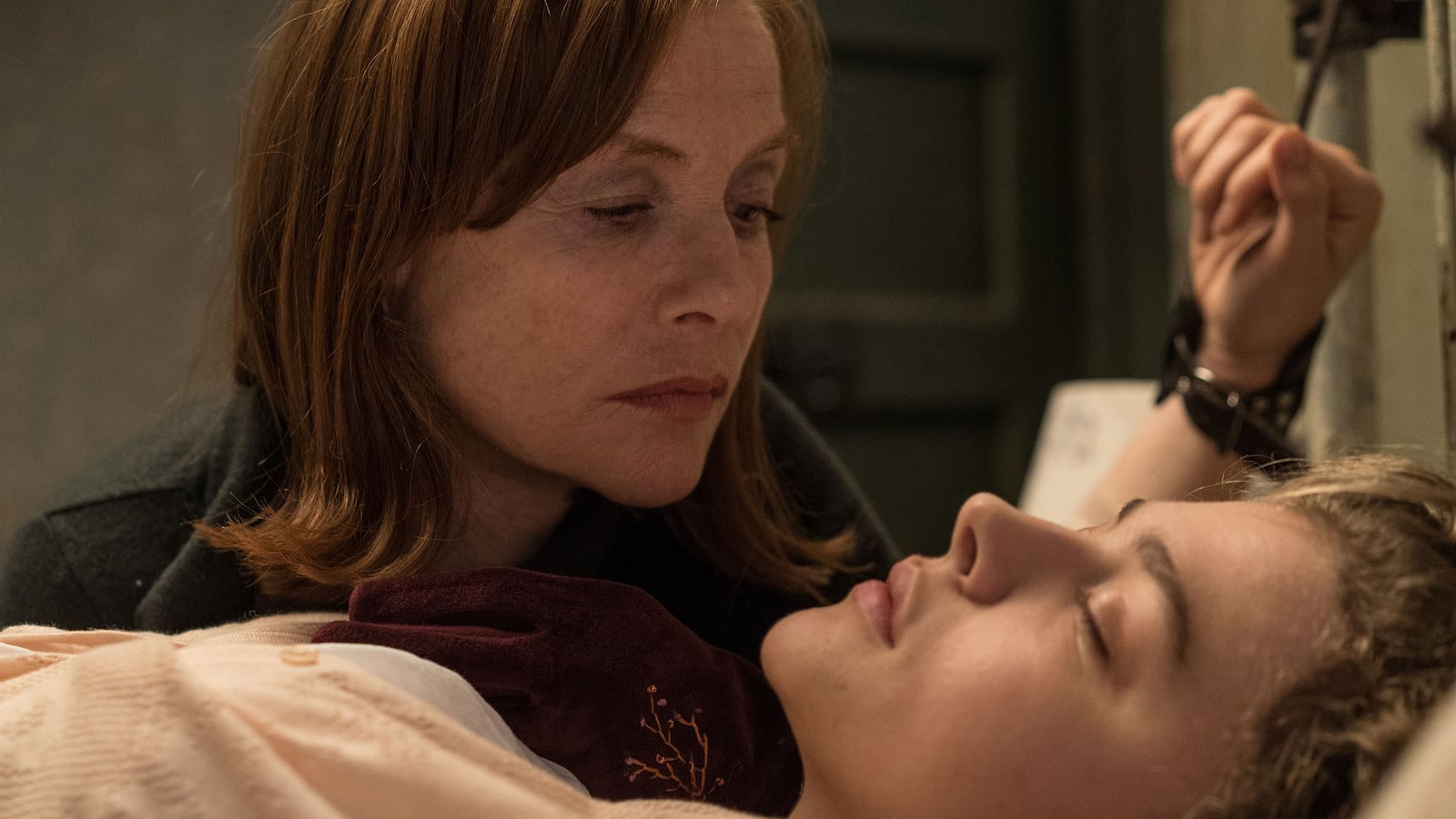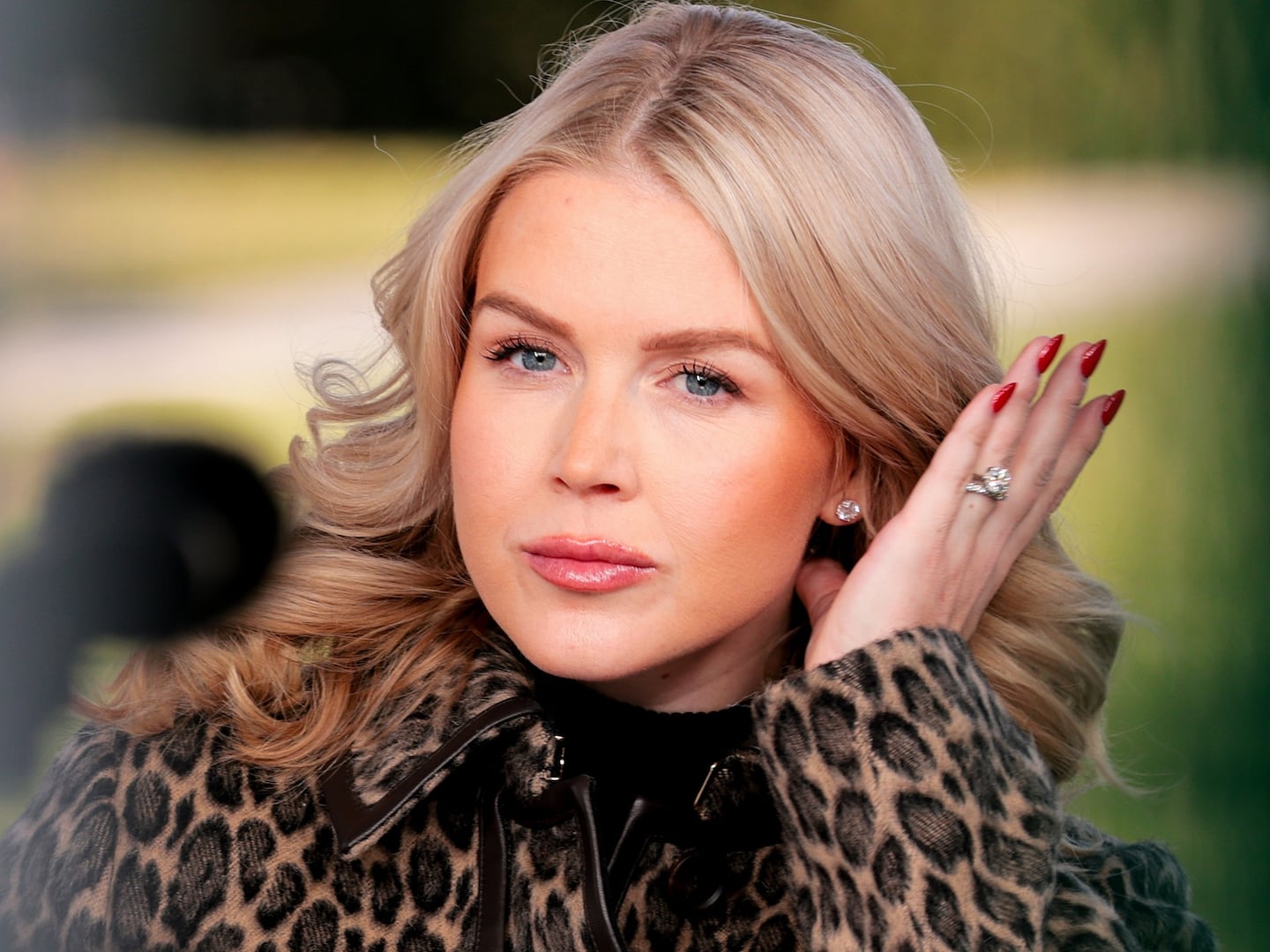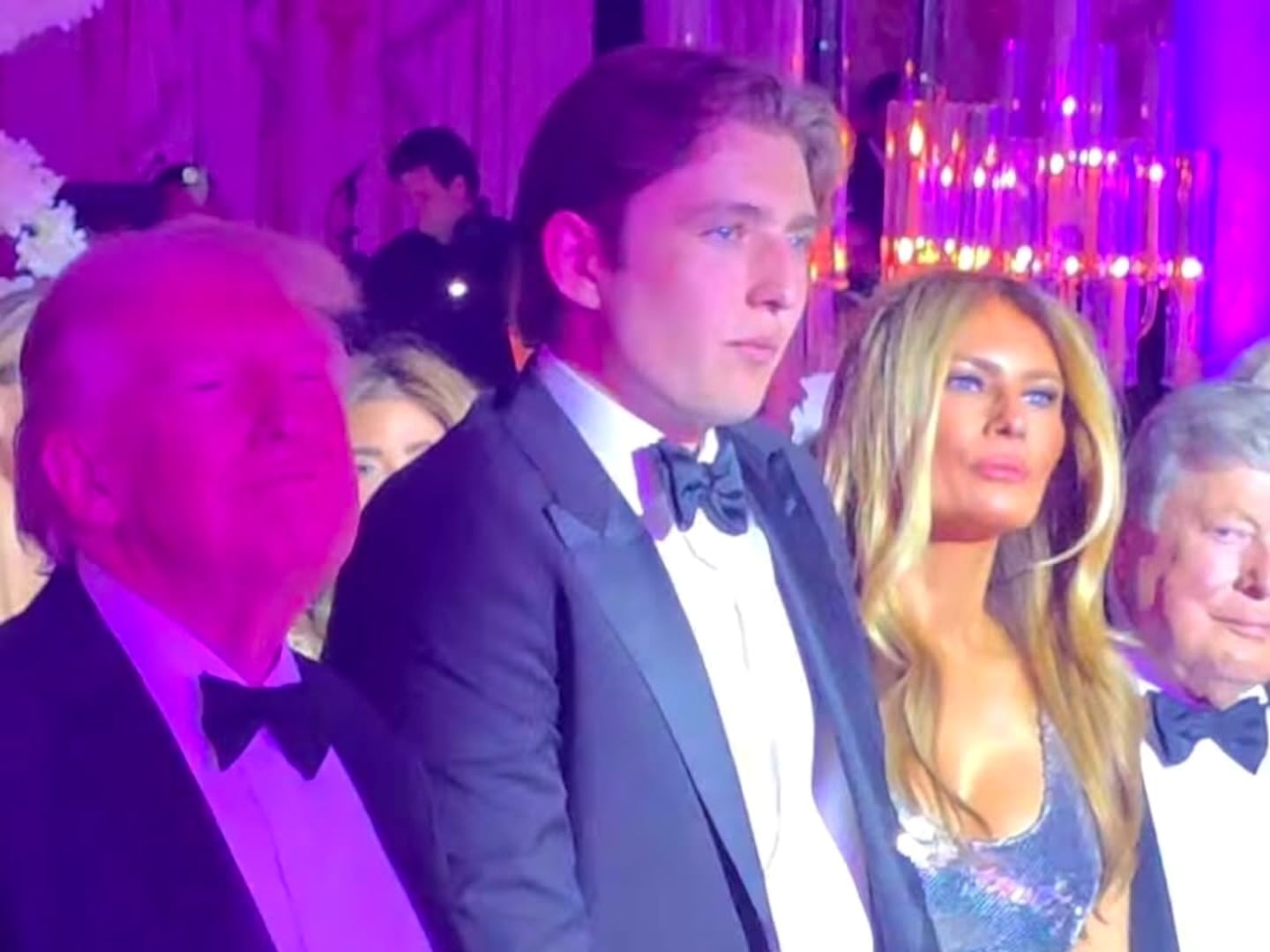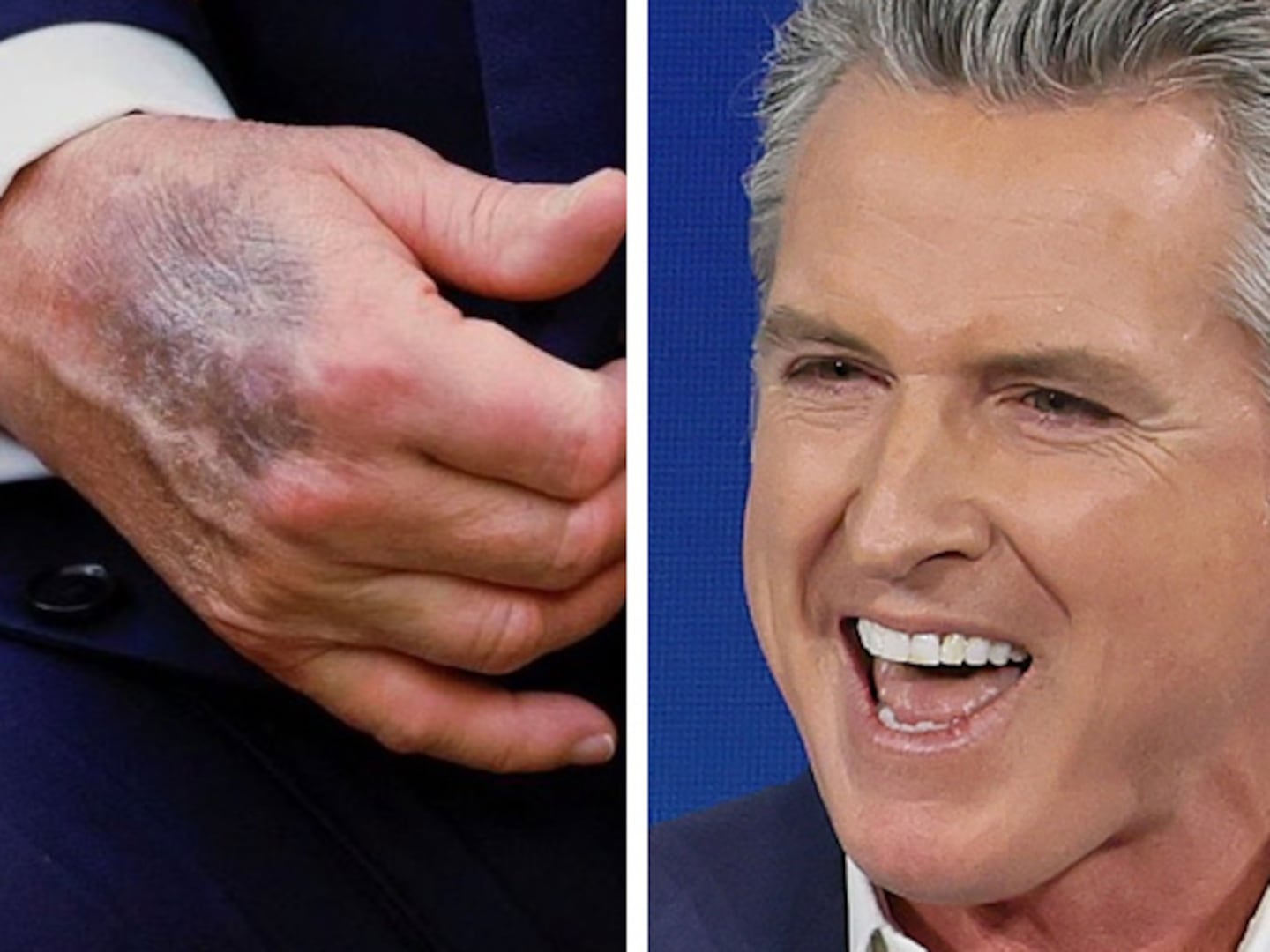Midway through Greta, director Neil Jordan’s initially easygoing, then totally wacko thriller, middle-aged widow Greta (Isabelle Huppert) responds to the callous behavior of her young new acquaintance Frances (Chloë Grace Moretz) by spitting a wad of gum into her hair. It’s a moment that not only harkens back to Frances’ prior promise of loyalty (“I’m like chewing gum—I tend to stick around”), but reveals the wholesale lunacy driving this saga of friendship gone awry, which takes the Single White Female template and gives it a delirious Mommie Dearest spin.
For long-time New Yorkers, the means by which Frances and Greta find each other will be the film’s biggest narrative stretch. Having recently moved from Boston to Manhattan to live with her wealthy BFF Erica (Maika Monroe), Frances works as a waitress while struggling to cope with the death of her beloved mother—a loss that’s alienated her from her businessman father (Colm Feore). Riding the subway one evening, she spies a handbag that’s been left on a seat. Aware of the ubiquitous public service notices informing patrons to notify authorities of any suspicious or abandoned packages, she attempts to drop the bag off with the official on duty at her stop, only to find the ticket booth empty. So, like the kindest of Samaritans, she finds an ID in the bag—amidst pills, cash, and a lottery ticket—and decides to return it to its owner.
This requires a trip out to a residence in what appears to be another borough. As it turns out, the bag belongs to Greta, who speaks in a relatively thick French accent and, upon welcoming Frances into her cozy home, reveals that her spouse passed away a few years earlier (as did her dog), and her daughter is a student living abroad. Thanks to her beloved husband, Greta is a talented pianist who gives lessons, and over a drink, the duo talk about their families and Greta’s loneliness, which Frances—after inputting her cell number in Greta’s phone—offers to alleviate by helping Greta pick out a new pet pooch.
This platonic May-December affair is, of course, rather strange, and a clear attempt by Frances to fill the hole in her life created by her mom’s departure—something Erica, feeling spurned by her flatmate, points out when she exclaims, “It’s so obvious, it’s sad. She’s not your mother!” Subtlety is not Greta’s forte, but Jordan’s script (co-written with Ray Wright) has a juicy luridness that’s amplified by his dexterous camerawork, which pans along racing subway cars and follow characters from behind as if hunting them, or trying to see their faces. There’s a tawdry spark to these early proceedings, and it truly ignites once Frances visits Greta for a night of cooking.
After Frances bolts from dinner without explaining her departure, the voicemails from Greta begin to pile up. Flowers arrive at Frances’ apartment, then Greta begins to show up outside the window of Frances’ restaurant…
“Everybody needs a friend,” laments Greta to Frances at one point, her voice so plaintive that it almost masks the menace lurking underneath. Greta is a story about the dangerous consequences of both solitude and rejection—as well as, of course, the perils of selflessness, as Frances is punished for being a nice young woman who wanted to help out a fellow New Yorker (and, in doing so, acquire a surrogate mother figure). Jordan, of Mona Lisa, The Crying Game and Interview with a Vampire fame, doesn’t unduly gussy up his tale, nor does he attempt to surprise his audience with innumerable curveballs. Instead, his film is upfront about its trajectory into sensational maternal-madwoman territory, all while capably providing a series of scenarios primed for playful loony-bin suspense.
Aided by Jordan’s able stewardship, Moretz and Huppert elevate Greta above its stock construction, bringing a measure of gung-ho intensity and insanity to the material. Exhibiting a fresh-faced innocence that helps sell her character’s naiveté, Moretz grounds the film in a believable portrait of millennial good intentions exploited by adult monstrousness. She’s charming and green and tough in equal measure, and most of all, she makes us root for Frances’ survival, even though a lot of her problems might have been avoided with a bit more forethought.
Nonetheless, there’s no victim-blaming needed when it comes to Greta, since culpability for this craziness lands squarely on the shoulders of Huppert’s loner, brought to deliciously hostile life by the acclaimed French actress, whose renowned versatility is put to terrific use. Capable of disarming even the wariest adversary (notably, Jordan regular Stephen Rea, as a private investigator) with her beguiling eyes and cunning smile, Huppert is a marvel in a role that asks her to go big and creepy while nodding to a handful of classic psychos gone by, including her own unhinged spinster in Michael Haneke’s The Piano Teacher.
In a film that revels in its own escalating outrageousness, hers is a tour-de-force performance of mania hidden beneath a veneer of gentle, refined, and somewhat tattered and sad elegance—a disguise that’s all the more devious for the way it naturally elicits sympathy from the most compassionate of individuals. She’s a parental predator to remember.






